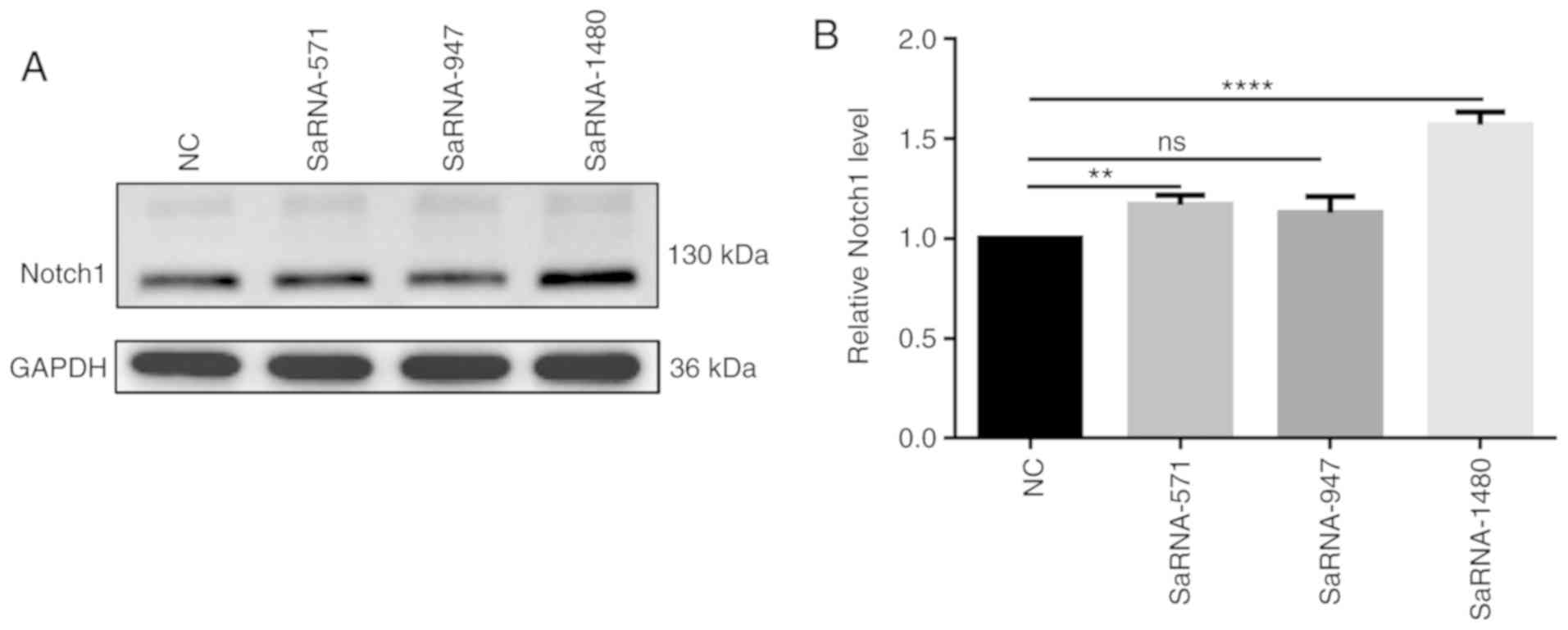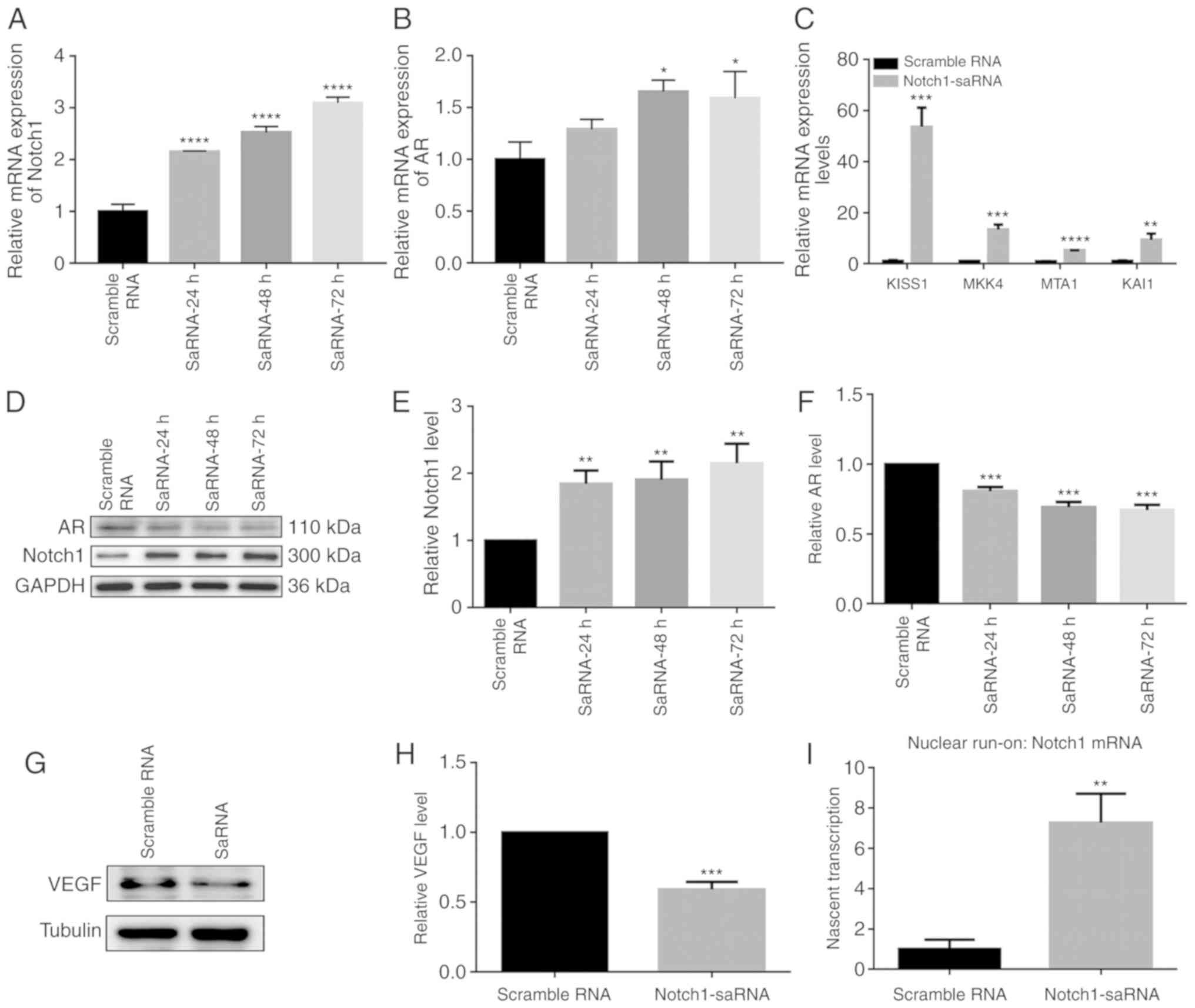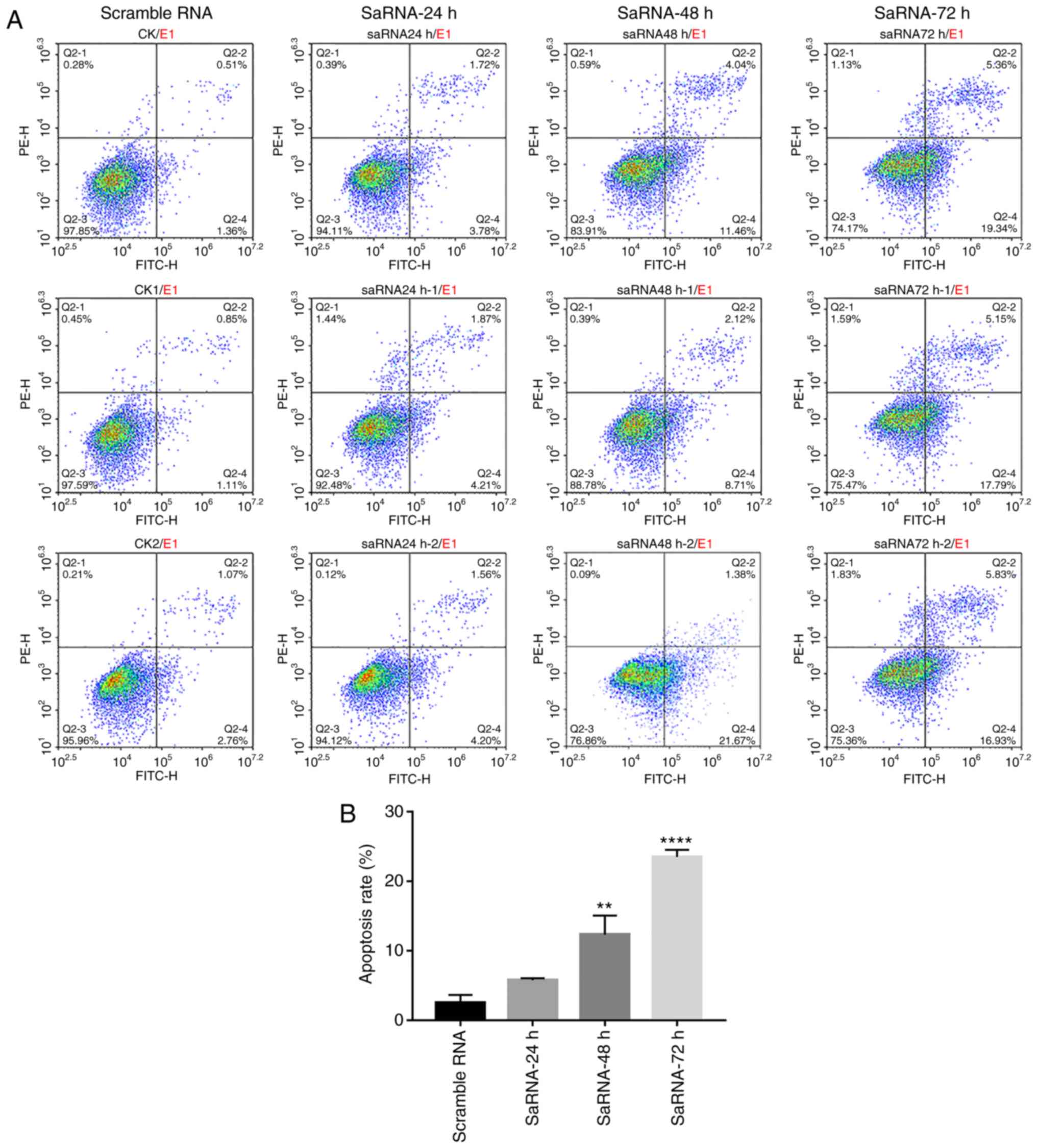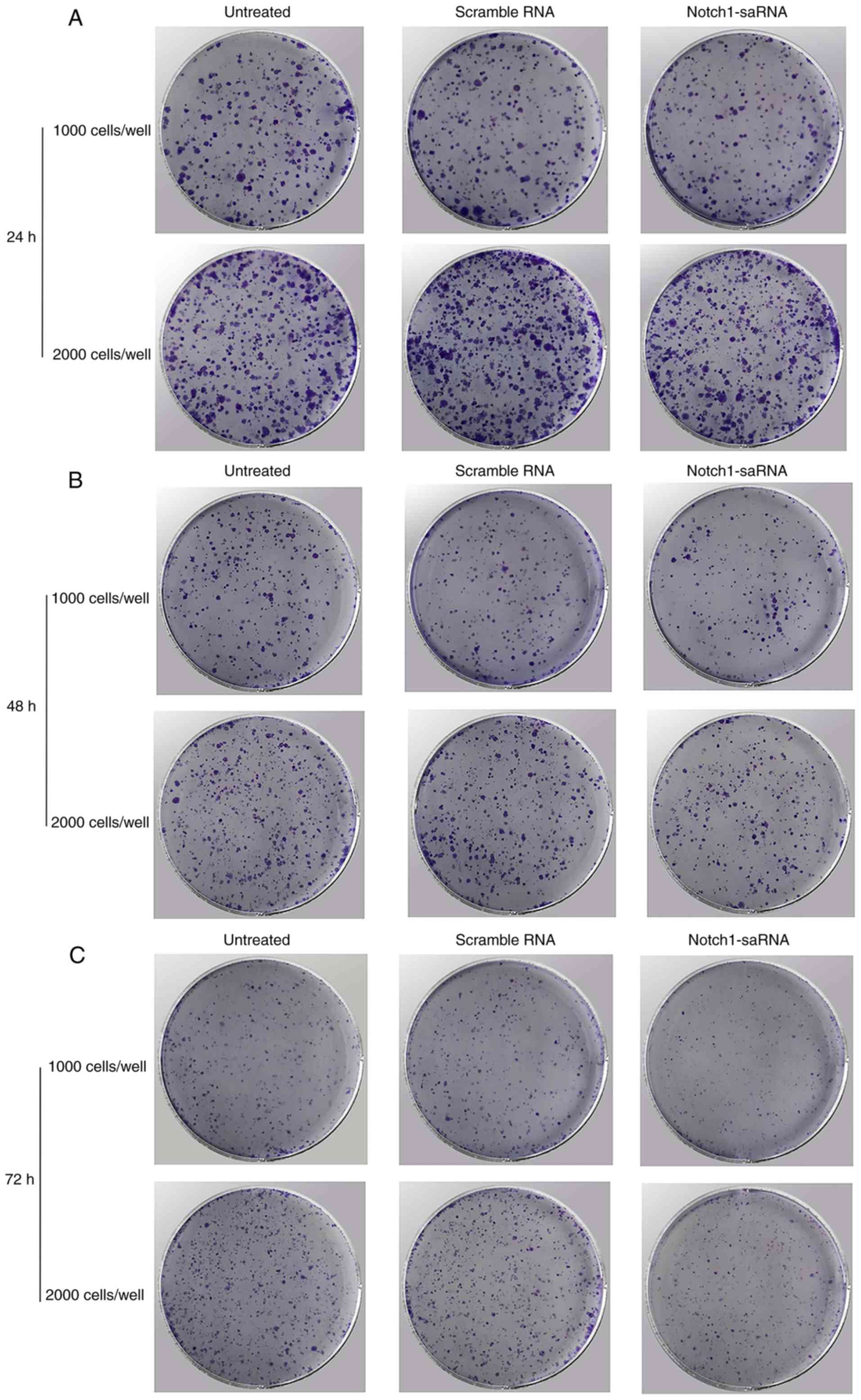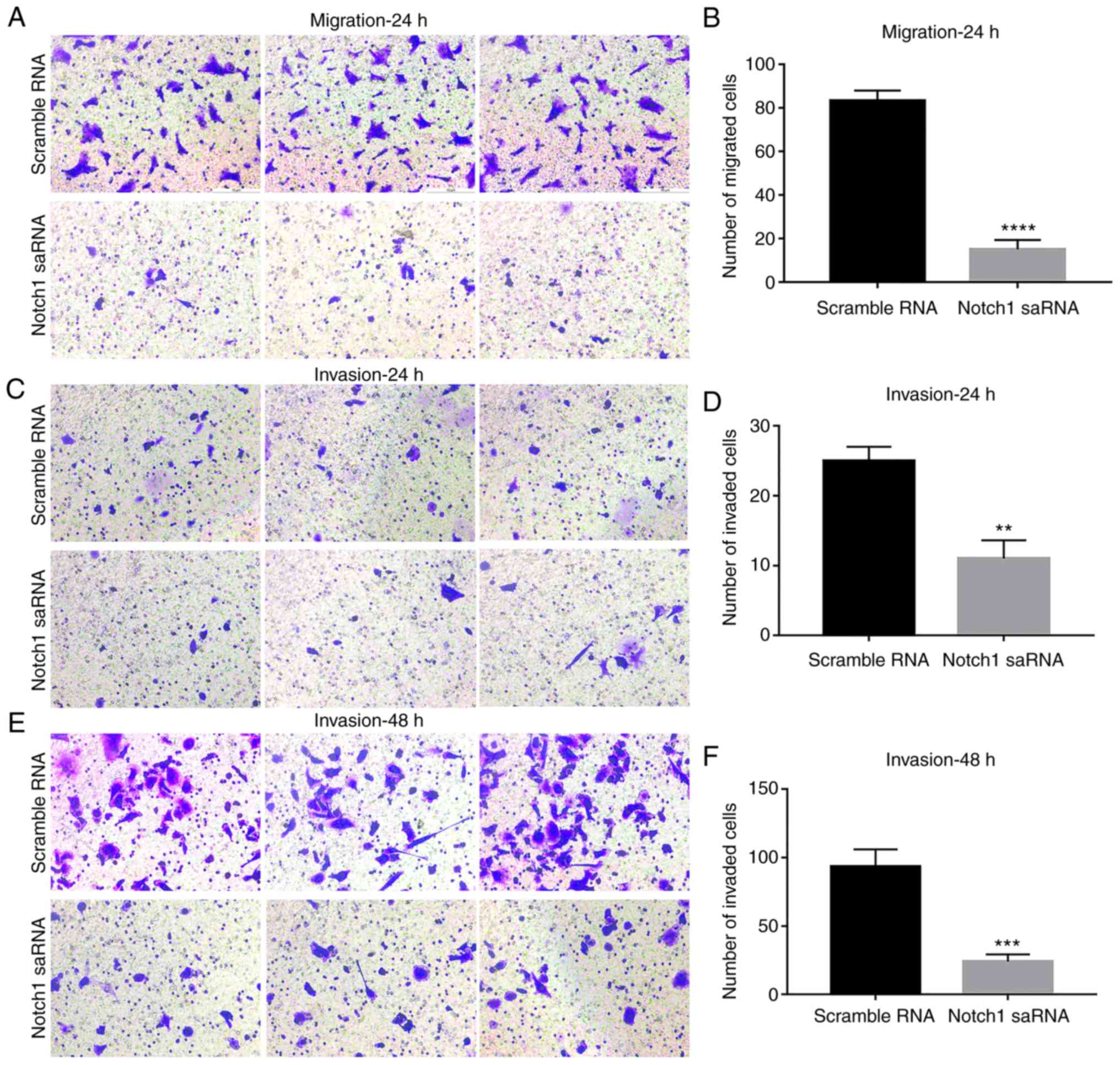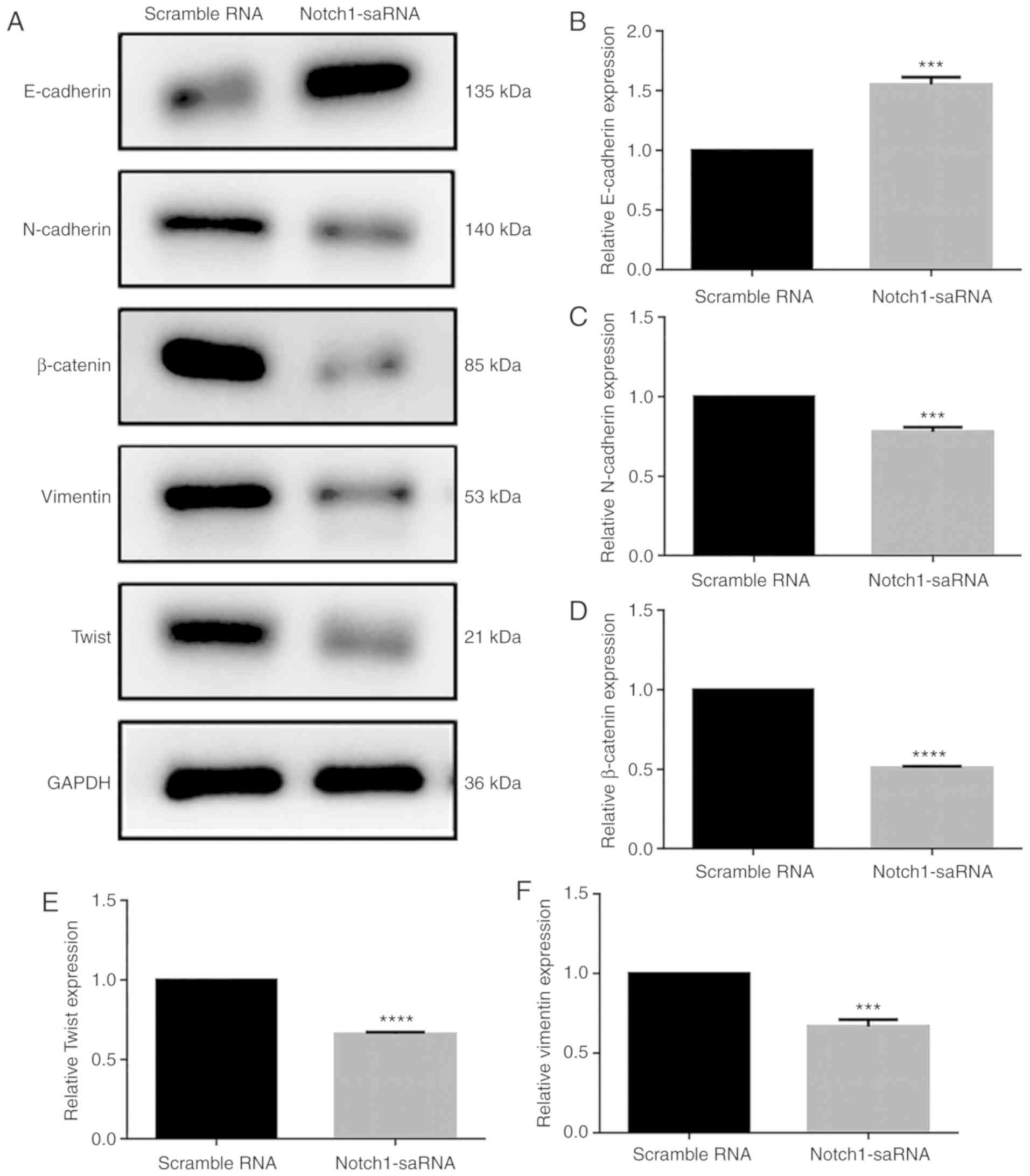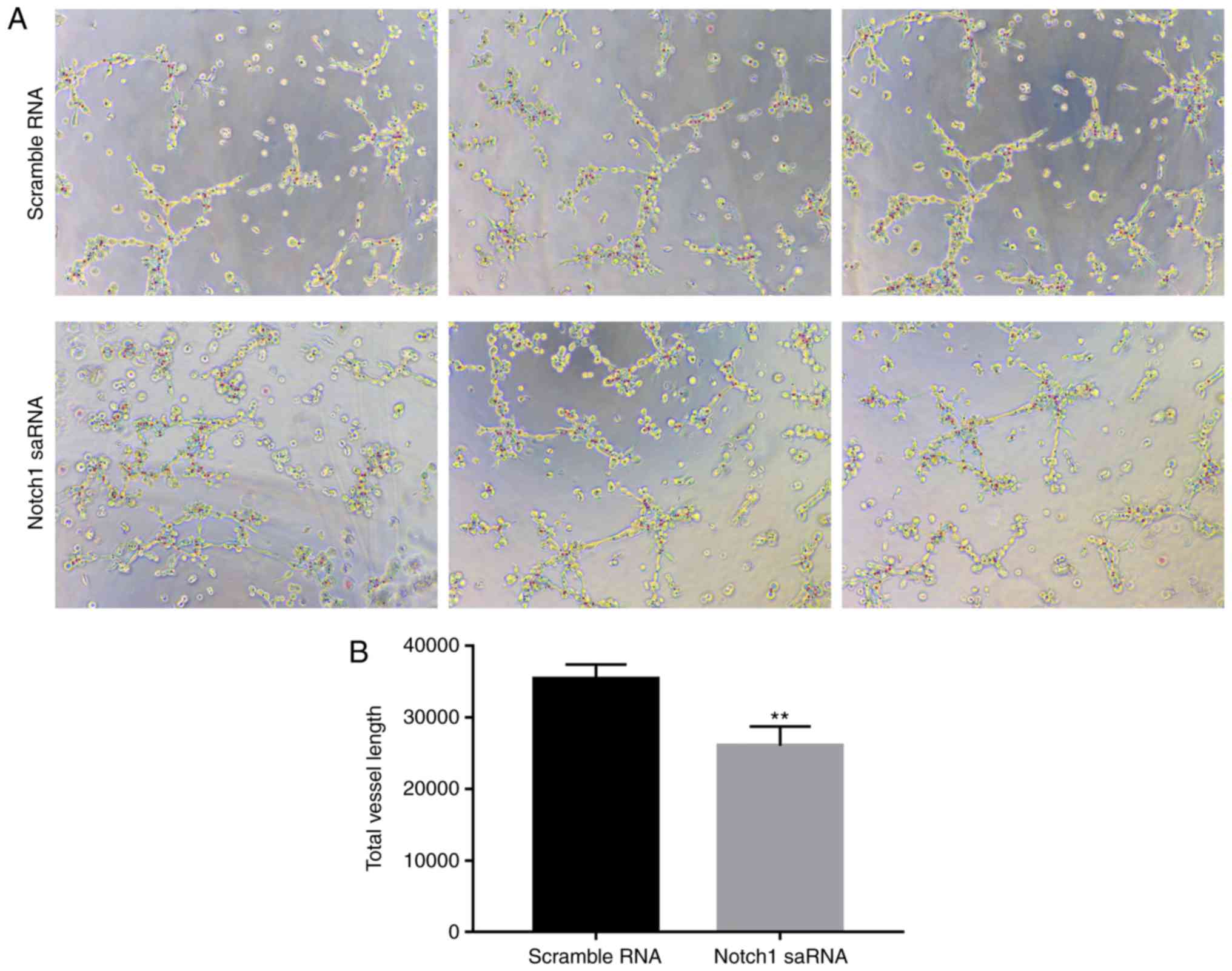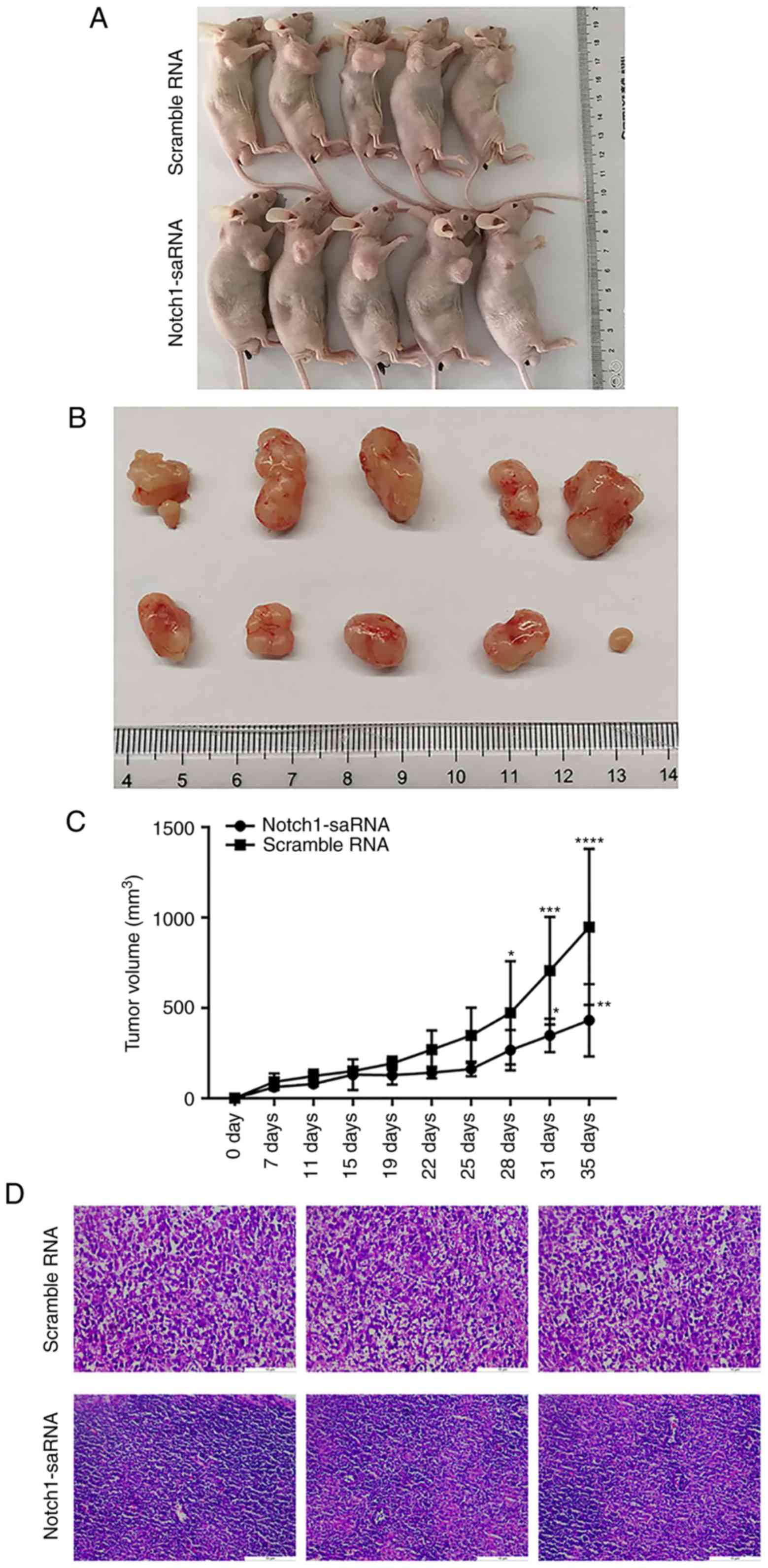|
1
|
Siegel RL, Miller KD and Jemal A: Cancer
statistics, 2017. CA Cancer J Clin. 67:7–30. 2017. View Article : Google Scholar : PubMed/NCBI
|
|
2
|
Filson CP, Marks LS and Litwin MS:
Expectant management for men with early stage prostate cancer. CA
Cancer J Clin. 65:265–282. 2015. View Article : Google Scholar : PubMed/NCBI
|
|
3
|
Chen WY, Tsai YC, Yeh HL, Suau F, Jiang
KC, Shao AN, Huang J and Liu YN: Loss of SPDEF and gain of TGFBI
activity after androgen deprivation therapy promote EMT and bone
metastasis of prostate cancer. Sci Signal. 10:eaam68262017.
View Article : Google Scholar : PubMed/NCBI
|
|
4
|
Stoyanova T, Riedinger M, Lin S,
Faltermeier CM, Smith BA, Zhang KX, Going CC, Goldstein AS, Lee JK,
Drake JM, et al: Activation of Notch1 synergizes with multiple
pathways in promoting castration-resistant prostate cancer. Proc
Natl Acad Sci USA. 113:E6457–E6466. 2016. View Article : Google Scholar : PubMed/NCBI
|
|
5
|
Carvalho FL, Simons BW, Eberhart CG and
Berman DM: Notch signaling in prostate cancer: A moving target.
Prostate. 74:933–945. 2014. View Article : Google Scholar : PubMed/NCBI
|
|
6
|
Deng G, Ma L, Meng Q, Ju X, Jiang K, Jiang
P and Yu Z: Notch signaling in the prostate: Critical roles during
development and in the hallmarks of prostate cancer biology. J
Cancer Res Clin Oncol. 142:531–547. 2016. View Article : Google Scholar
|
|
7
|
Nabbi A, McClurg UL, Thalappilly S, Almami
A, Mobahat M, Bismar TA, Binda O and Riabowol KT: ING3 promotes
prostate cancer growth by activating the androgen receptor. BMC
Med. 15:1032017. View Article : Google Scholar : PubMed/NCBI
|
|
8
|
Miyamoto H, Meming EM and Chang C:
Androgen deprivation therapy for prostate cancer: Current status
and future prospects. Prostate. 61:332–353. 2004. View Article : Google Scholar : PubMed/NCBI
|
|
9
|
Stanbrough M, Bubley GJ, Ross K, Golub TR,
Rubin MA, Penning TM, Febbo PG and Balk SP: Increased expression of
genes converting adrenal androgens to testosterone in
androgen-independent prostate cancer. Cancer Res. 66:2815–2825.
2006. View Article : Google Scholar : PubMed/NCBI
|
|
10
|
Wang Y, Wu X, Ou L, Yang X, Wang X, Tang
M, Chen E and Luo C: PLCε knockdown inhibits prostate cancer cell
proliferation via suppression of Notch signalling and nuclear
translocation of the androgen receptor. Cancer Lett. 362:61–69.
2015. View Article : Google Scholar : PubMed/NCBI
|
|
11
|
Belandia B, Powell SM, García-Pedrero JM,
Walker MM, Bevan CL and Parker MG: Hey1, a mediator of notch
signaling, is an androgen receptor corepressor. Mol Cell Biol.
25:1425–1436. 2005. View Article : Google Scholar : PubMed/NCBI
|
|
12
|
Sadick H, Naim R, Gössler U, Hörmann K and
Riedel F: Angiogenesis in hereditary hemorrhagic telangiectasia:
VEGF165 plasma concentration in correlation to the VEGF expression
and microvessel density. Int J Mol Med. 15:15–19. 2005.
|
|
13
|
Shou J, Ross S, Koeppen H, de Sauvage FJ
and Gao WQ: Dynamics of notch expression during murine prostate
development and tumorigenesis. Cancer Res. 61:7291–7297.
2001.PubMed/NCBI
|
|
14
|
D'Amore PA and Ng YS: Won't you be my
neighbor? Local induction of arteriogenesis. Cell. 110:289–292.
2002. View Article : Google Scholar : PubMed/NCBI
|
|
15
|
Siekmann AF, Covassin L and Lawson ND:
Modulation of VEGF signalling output by the Notch pathway.
Bioessays. 30:303–313. 2008. View Article : Google Scholar : PubMed/NCBI
|
|
16
|
Livak KJ and Schmittgen TD: Analysis of
relative gene expression data using real-time quantitative PCR and
the 2(-Delta Delta C(T)) method. Methods. 25:402–408. 2001.
View Article : Google Scholar
|
|
17
|
Roberts TC, Hart JR, Kaikkonen MU,
Weinberg MS, Vogt PK and Morris KV: Quantification of nascent
transcription by bromouridine immunocapture nuclear run-on RT-qPCR.
Nat Protoc. 10:1198–1211. 2015. View Article : Google Scholar : PubMed/NCBI
|
|
18
|
Alimirah F1, Chen J, Basrawala Z, Xin H
and Choubey D: DU-145 and PC-3 human prostate cancer cell lines
express androgen receptor: Implications for the androgen receptor
functions and regulation. FEBS Lett. 580:2294–2300. 2006.
View Article : Google Scholar : PubMed/NCBI
|
|
19
|
Davis R, Jia D, Cinar B, Sikka SC, Moparty
K, Zhau HE, Chung LW, Agrawal KC and Abdel-Mageed AB: Functional
androgen receptor confers sensitization of androgen-independent
prostate cancer cells to anticancer therapy via caspase activation.
Biochem Biophys Res Commun. 309:937–945. 2003. View Article : Google Scholar : PubMed/NCBI
|
|
20
|
Deng G, Ju X, Meng Q, Yu ZJ and Ma LB:
Emodin inhibits the proliferation of PC3 prostate cancer cells in
vitro via the Notch signaling pathway. Mol Med Rep. 12:4427–4433.
2015. View Article : Google Scholar : PubMed/NCBI
|
|
21
|
Zhang L, Sha J, Yang G, Huang X, Bo J and
Huang Y: Activation of Notch pathway is linked with
epithelial-mesenchymal transition in prostate cancer cells. Cell
Cycle. 16:999–1007. 2017. View Article : Google Scholar : PubMed/NCBI
|
|
22
|
Yang JH, Wylie-Sears J and Bischoff J:
Opposing actions of Notch1 and VEGF in post-natal cardiac valve
endothelial cells. Biochem Biophys Res Commun. 374:512–516. 2008.
View Article : Google Scholar : PubMed/NCBI
|
|
23
|
Bao B, Wang Z, Ali S, Kong D, Li Y, Ahmad
A, Banerjee S, Azmi AS, Miele L and Sarkar FH: Notch-1 induces
epithelial-mesenchymal transition consistent with cancer stem cell
phenotype in pancreatic cancer cells. Cancer Lett. 307:26–36. 2011.
View Article : Google Scholar : PubMed/NCBI
|
|
24
|
Mao Q, Zheng X, Yang K, Qin J, Bai Y, Jia
X, Li Y and Xie L: Suppression of migration and invasion of PC3
prostate cancer cell line via activating E-cadherin expression by
small activating RNA. Cancer Invest. 28:1013–1018. 2010. View Article : Google Scholar : PubMed/NCBI
|
|
25
|
Yang K, Zheng XY, Qin J, Wang YB, Bai Y,
Mao QQ, Wan Q, Wu ZM and Xie LP: Up-regulation of p21WAF1/Cip1 by
saRNA induces G1-phase arrest and apoptosis in T24 human bladder
cancer cells. Cancer Lett. 265:206–214. 2008. View Article : Google Scholar : PubMed/NCBI
|
|
26
|
Liu ZJ, Shirakawa T, Li Y, Soma A, Oka M,
Dotto GP, Fairman RM, Velazquez OC and Herlyn M: Regulation of
Notch1 and Dll4 by vascular endothelial growth factor in arterial
endothelial cells: Implications for modulating arteriogenesis and
angiogenesis. Mol Cell Biol. 23:14–25. 2003. View Article : Google Scholar :
|
|
27
|
Larrivée B, Prahst C, Gordon E, del Toro
R, Mathivet T, Duarte A, Simons M and Eichmann A: ALK1 signaling
inhibits angiogenesis by cooperating with the Notch pathway. Dev
Cell. 22:489–500. 2012. View Article : Google Scholar : PubMed/NCBI
|
|
28
|
Yang J, Wang C, Zhang Z, Chen X, Jia Y,
Wang B and Kong T: Curcumin inhibits the survival and metastasis of
prostate cancer cells via the Notch-1 signaling pathway. APMIS.
125:134–140. 2017. View Article : Google Scholar : PubMed/NCBI
|
|
29
|
Sahara M, Hansson EM, Wernet O, Lui KO,
Später D and Chien KR: Manipulation of a VEGF-Notch signaling
circuit drives formation of functional vascular endothelial
progenitors from human pluripotent stem cells. Cell Res.
25:1482015. View Article : Google Scholar : PubMed/NCBI
|
|
30
|
Zang M, Hu L, Zhang B, Zhu Z, Li J, Zhu Z,
Yan M and Liu B: Luteolin suppresses angiogenesis and vasculogenic
mimicry formation through inhibiting Notch1-VEGF signaling in
gastric cancer. Biochem Biophys Res Commun. 490:913–919. 2017.
View Article : Google Scholar : PubMed/NCBI
|
|
31
|
Esquela-Kerscher A and Slack FJ:
Oncomirs-microRNAs with a role in cancer. Nat Rev Cancer.
6:259–269. 2006. View Article : Google Scholar : PubMed/NCBI
|
|
32
|
Elbashir SM, Harborth J, Lendeckel W,
Yalcin A, Weber K and Tuschl T: Duplexes of 21-nucleotide RNAs
mediate RNA interference in cultured mammalian cells. Nature.
411:494–498. 2001. View Article : Google Scholar : PubMed/NCBI
|
|
33
|
Chen Z, Place RF, Jia ZJ, Pookot D, Dahiya
R and Li LC: Antitumor effect of dsRNA-induced p21(WAF1/CIP1) gene
activation in human bladder cancer cells. Mol Cancer Ther.
7:698–703. 2008. View Article : Google Scholar : PubMed/NCBI
|















